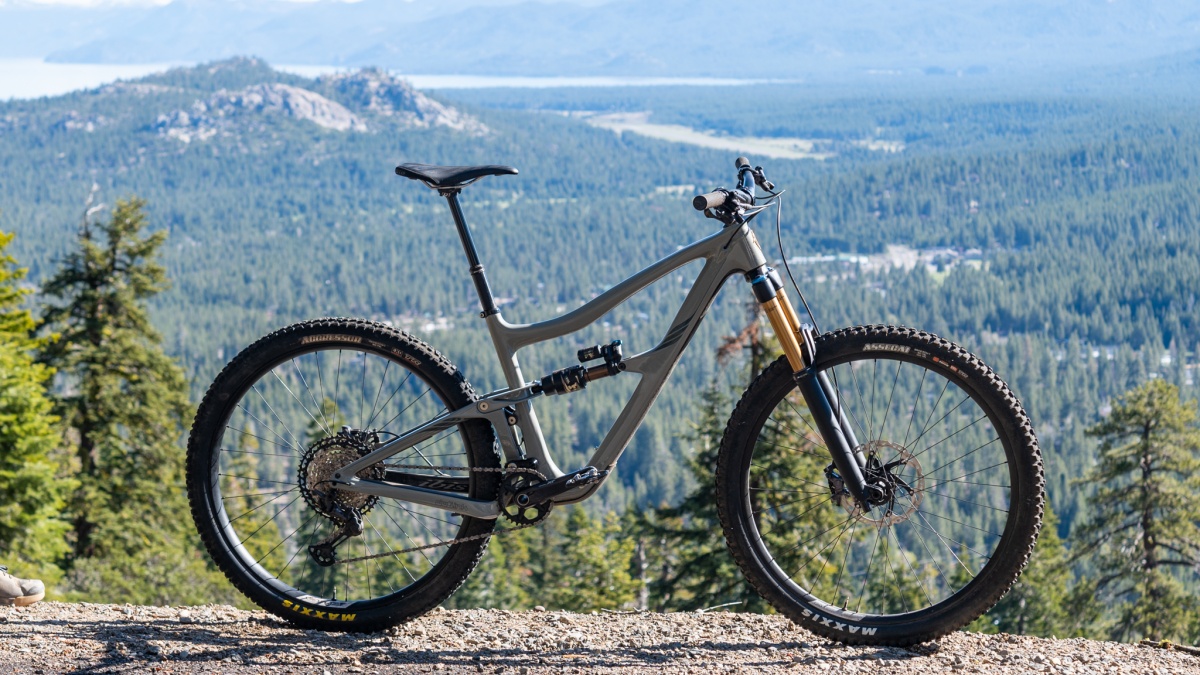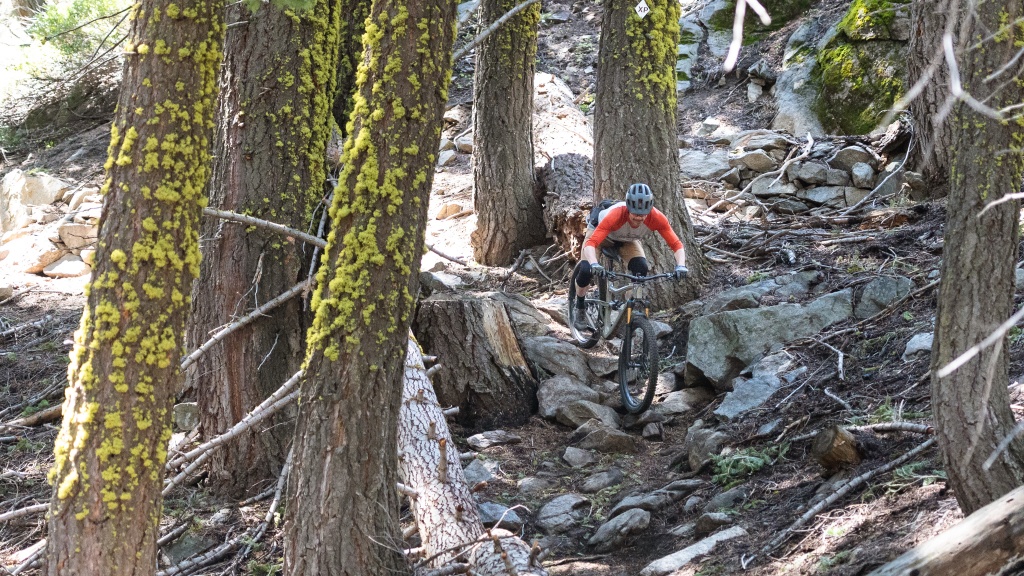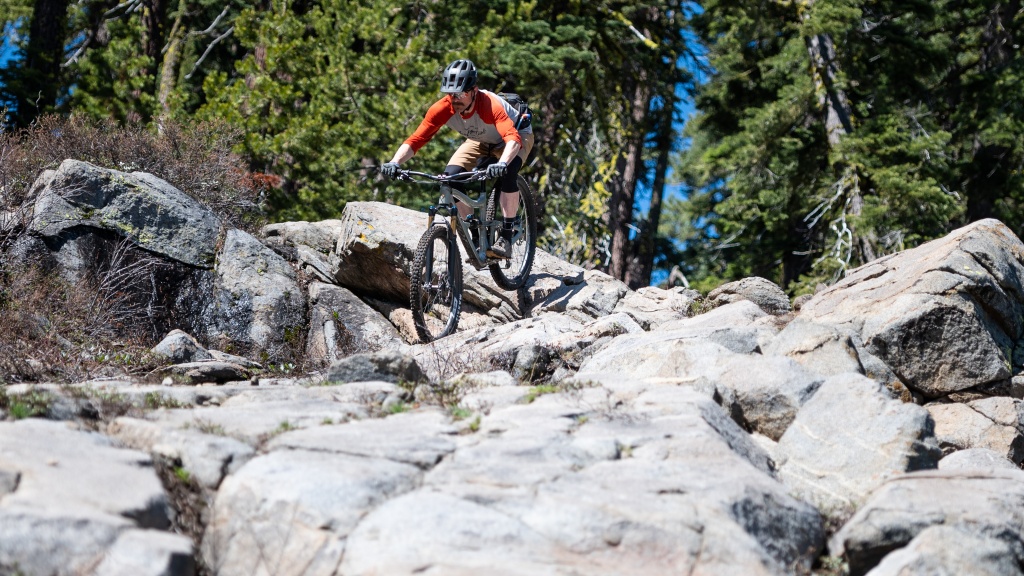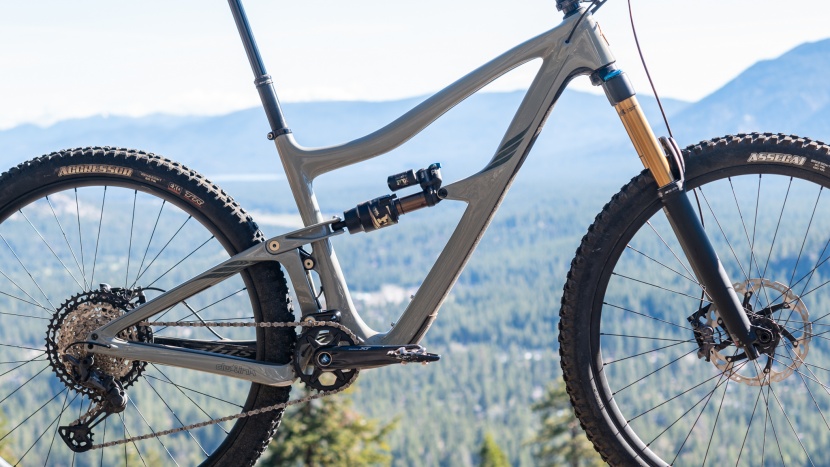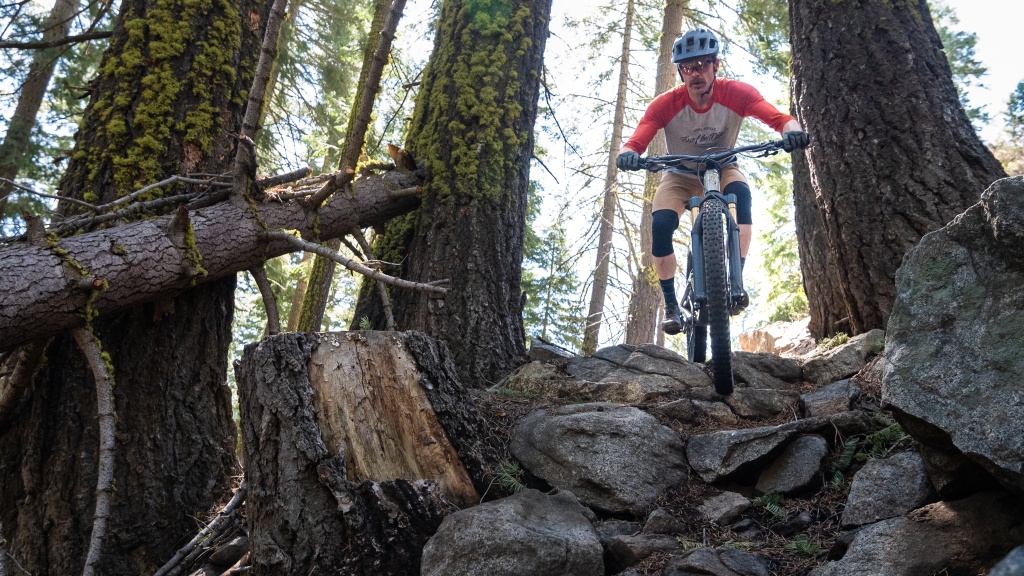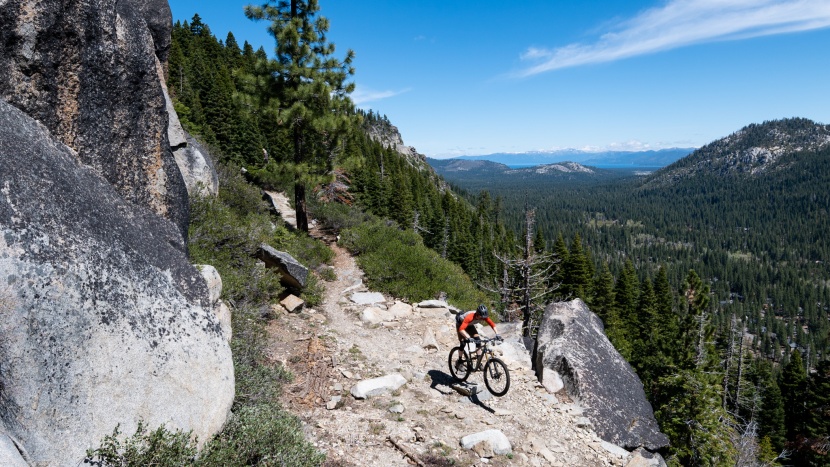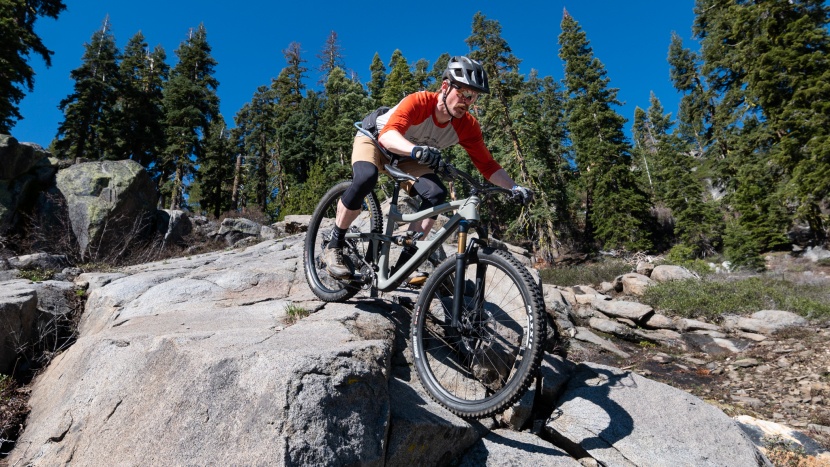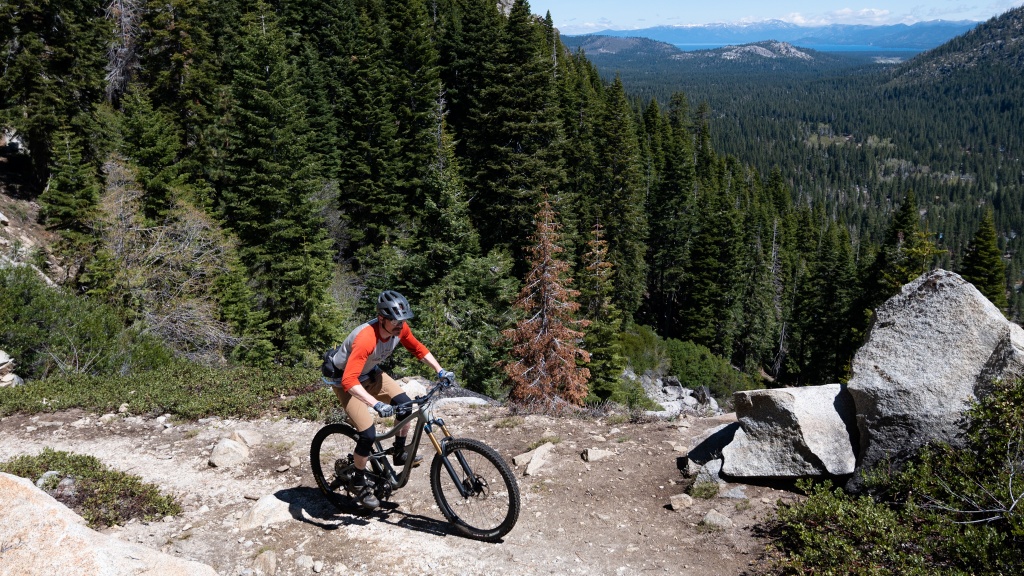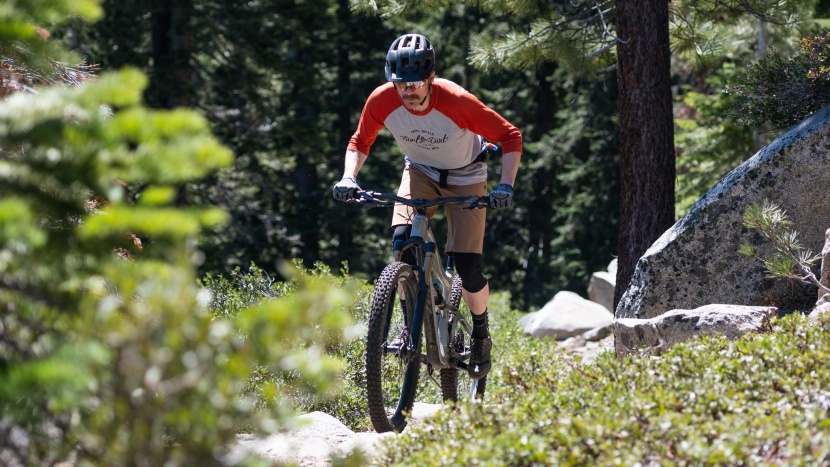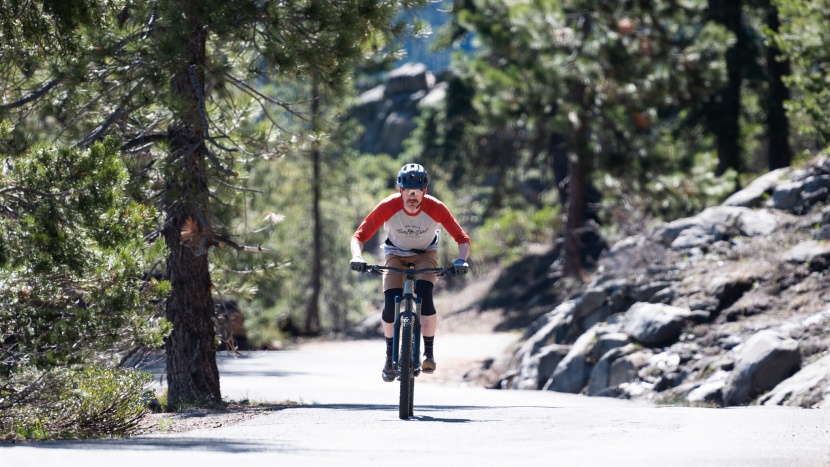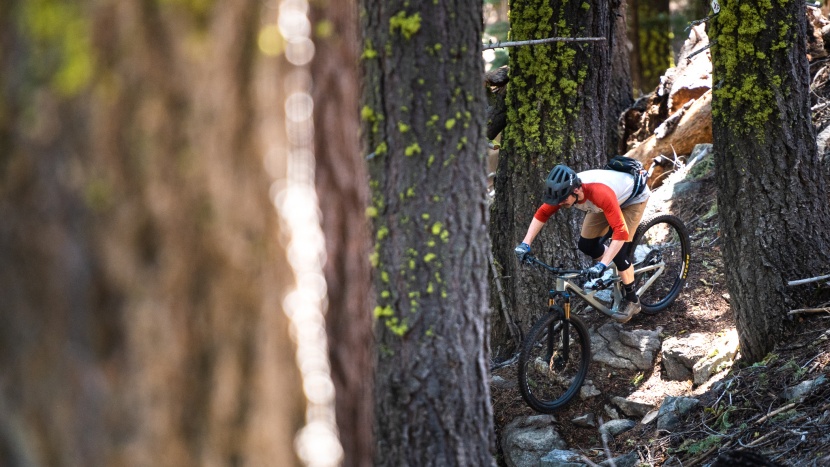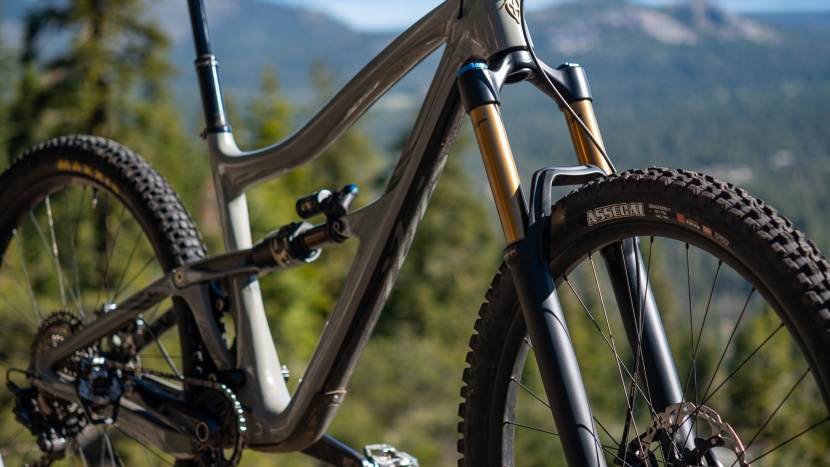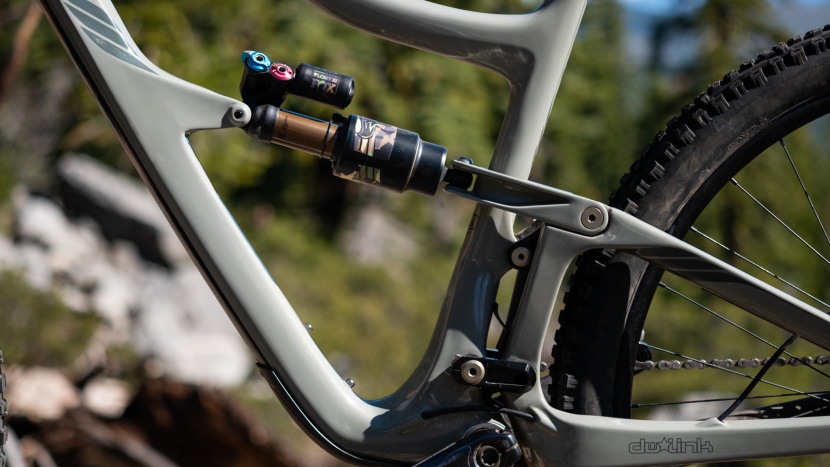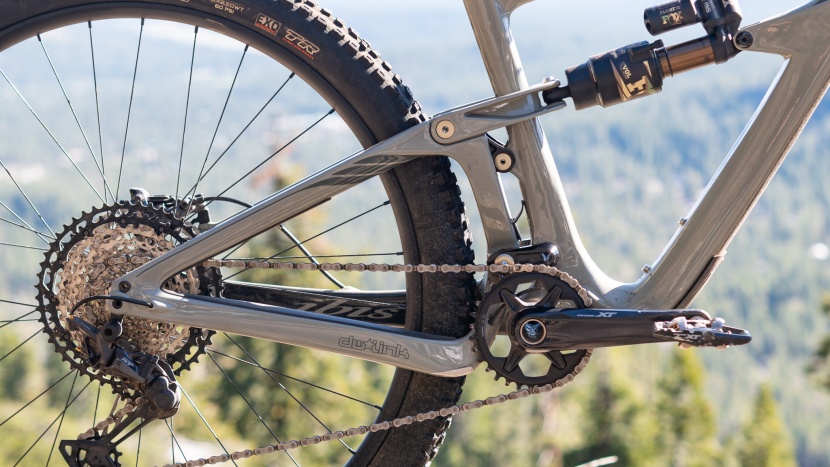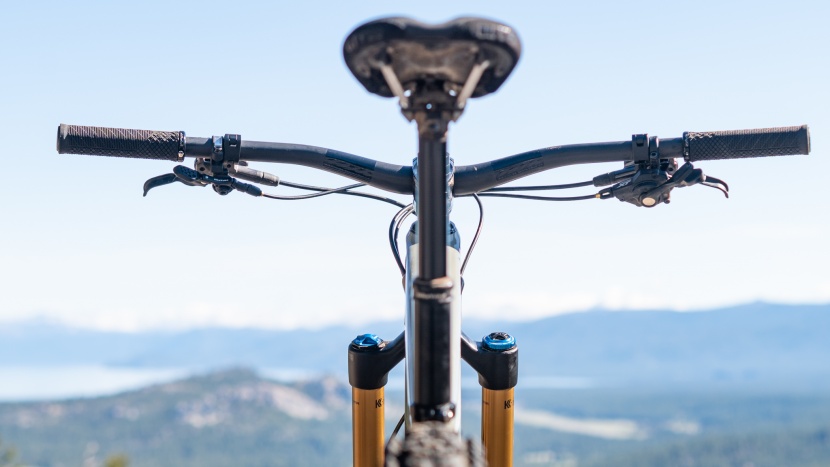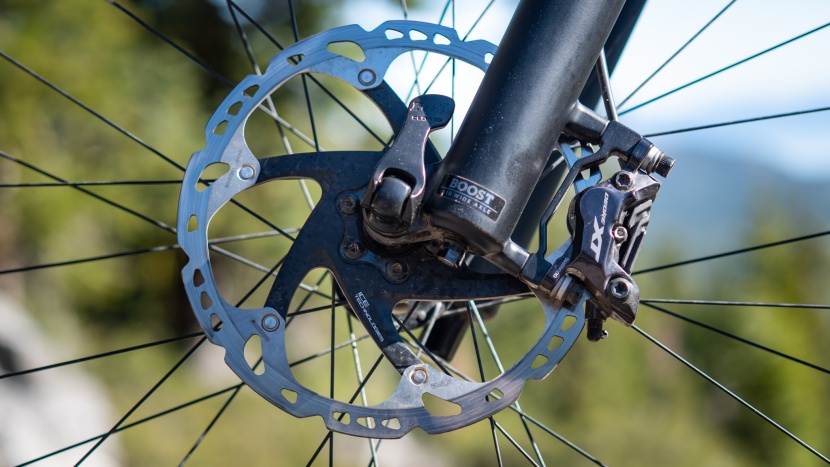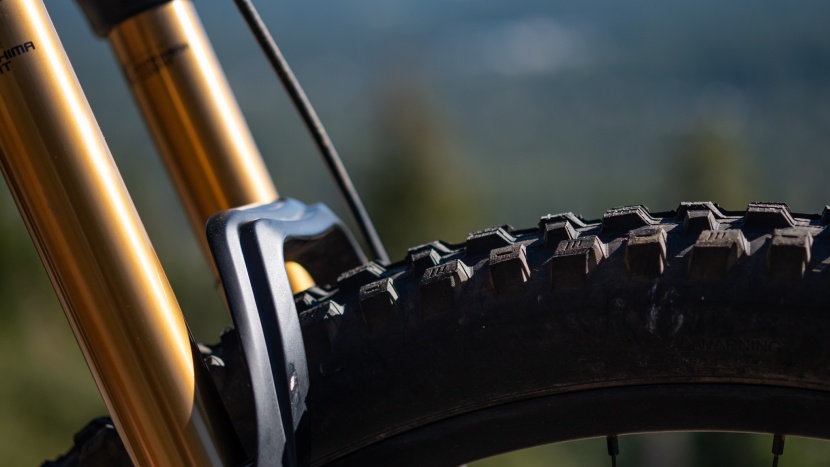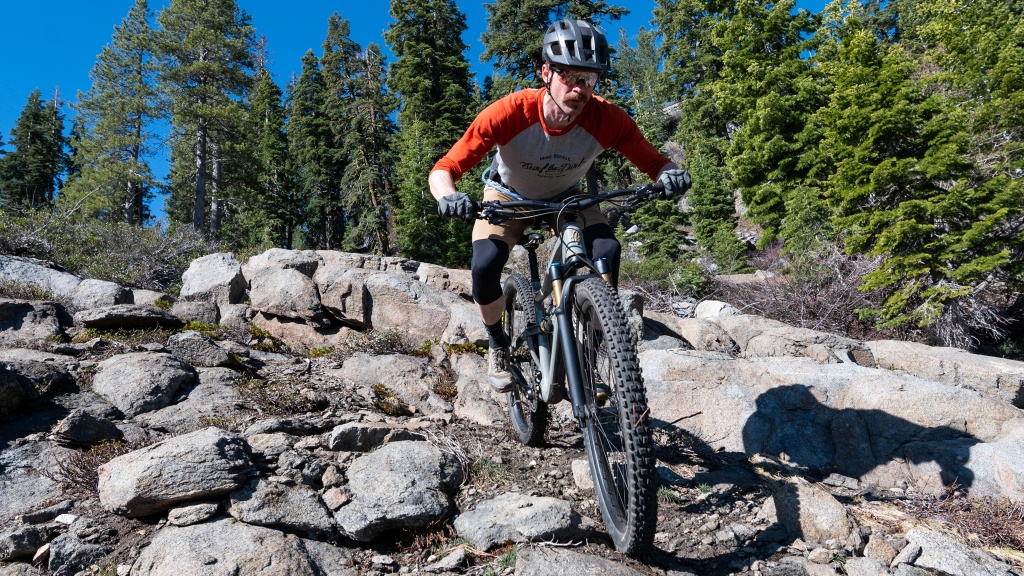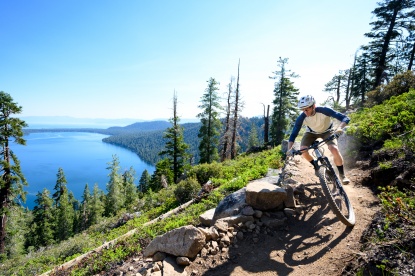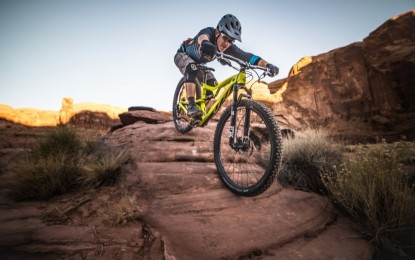
Our Verdict
Our Analysis and Test Results
Ibis recently announced some minor updates to the Ripmo V2. While the geometry remains the same, Ibis has made some slight alterations to the rear triangle/swingarm, including a Universal Derailleur Hanger (UDH), a 55 mm chain line, enhanced chain protection, and upgraded clevis bushings. The new models are called the Ripmo V2S, the S stands for swingarm. Ibis has also updated their logo for the first time in nearly thirty years. -October 2022
Should I Buy This Bike?
Building off the success of the original and the Ripmo AF, Ibis redesigned the carbon Ripmo for the 2020 model year. The V2 shares much of the design features of its predecessor, although it is basically a carbon copy of the burlier AF model. In the update, Ibis slackened the head tube by a full degree to 64.9-degrees, lengthened the wheelbase, increased the rear travel by 2mm to 147mm, and changed the suspension curve slightly to make it more progressive at the end of the stroke. These changes addressed many of the complaints that some riders had about the first version, making it even more capable and composed on the descents. Despite the geometry changes, the V2 is still a unicorn with an all-around performance that makes it one of the best bikes we've ever tested. This aggressive trail bike climbs shockingly well and maintains the energetic and sporty feel that was one of the hallmarks of the original. Climbing or descending, this bike felt intuitive and comfortable, and our testers were charging descents faster than ever before. While we don't feel its as burly as a full-on enduro sled, this long-legged 29er has a huge bandwidth ranging from all-day backcountry epics to light-duty enduro racing. The XT build we tested was absolutely stunning and only helped enhance this bike's on-trail performance. Anyone looking for an aggressive trail bike that does it all well should give the Ripmo V2 a look.
The Santa Cruz Hightower is one of the most comparable bikes we've tested recently. The Hightower is another longer travel 29er, although with a touch less travel at 150/140mm front/rear. Both bikes have similar geometries, though the new Ripmo has a slightly longer reach and wheelbase, and slacker head tube angle by 0.3 degrees. The Hightower also has a full carbon frame and it employs a low-mount VPP suspension design. VPP provides excellent deep stroke support and a great pedaling platform, although its small bump compliance and performance over high-frequency chop can't compete with the DW link on the Ripmo. We found the Hightower to come alive when speeds increased and things got rowdy, though it felt a little less well rounded than the Ripmo with a less impressive performance on the climbs and in tighter technical terrain. Aluminum framed Hightowers start at $2,899 with carbon builds ranging from $4,299 to $10,499.
It may seem odd, but it would be hard not to compare the carbon Ripmo V2 to the less expensive aluminum-framed Ripmo AF. These bikes share the same geometry and frame design with the primary difference being the frame material and price. We tested the Ripmo AF with the NX Eagle build, and it tipped the scales at 34 lbs, 3 lbs heavier than the carbon version in the same size. This weight difference is notable and certainly noticeable on the climbs and at lower speeds on the descents where it can feel a bit sluggish and bulky comparatively. Generally speaking, however, both bikes are good climbers and aggressive descenders, although the carbon version feels more nimble and energetic. AF models start at $2,999 and all of them come with excellent DVO suspension, 12-speed drivetrains, dropper posts, and aggressive tires.
Frame Design
The second coming of the Ripmo looks a lot like the first, although there are a number of changes that have helped make it even more capable and well-rounded than the original. It is essentially a carbon copy of the Ripmo AF, and it features a full carbon frame with the tried and trusted DW-Link suspension platform. DW is a dual-link system with the lower link located just above the bottom bracket with the upper link attached about midway up the seat tube. Its rear travel has grown by 2mm to 147mm, and the suspension curve has been tweak slightly to provide more progressivity at the end of the stroke. The frame has internal cable routing, space for a full-size water bottle, as well as integrated bottom bracket and chainstay protection.
Ibis made some subtle changes to the Ripmo's geometry, and the new model has a slack 64.9-degree head tube angle and a longer 1238mm wheelbase on our size large. We measured the effective top tube length at 633mm with a generous 475mm reach. The bottom bracket sits 340mm off the ground, with 435mm chainstays. Our test bike weighed in at 31 lbs on the nose set up tubeless and without pedals.
Design Highlights
-Available in carbon fiber (tested) and aluminum frames (Ripmo AF)
-29-inch wheels only
-147mm of DW-Link rear suspension
-Designed around a 160mm reduced offset fork
-Clearance for up to 2.6-inch wide tires
-Threaded bottom bracket
-Available in sizes S-XL
-Seven-year warranty on frame.
-Sold as a frame only for $2,999 with complete carbon builds starting at $4,399
Downhill Performance
The Ripmo V2 is an even more confident and capable descender than its predecessor. The slacker head tube angle and longer wheelbase give it outstanding stability and composure at speed and inspire the confidence to point it down steep and technical terrain. At the same time, the short chainstays and supportive mid-stroke keep this bike feeling energetic and nimble. There was no situation where the Ripmo felt out of place on the descents.
The updated geometry of the Ripmo V2 took one of the best all-around trail bikes and made it far more capable and comfortable in aggressive, gnarly terrain. The 64.9-degree head tube angle is pretty slack, and it provides a high level of confidence when rolling into a steep chute or rock garden. The added length of the wheelbase also adds to that composed feel, and this bike kept its cool very well as speeds increased. Somehow, Ibis added the best qualities of a longer wheelbase and slacker head tube without making the bike feel bulky or piggish at lower speeds or in tighter terrain. We found low-speed handling to remain super responsive, and this bike rarely, if ever, felt like a handful. We also found that the sportiness we loved about the original was intact, with 435mm chainstays that promote manuals and trailside pops.
The DW-Link suspension with the updated leverage curve really shines on the descents. The Ripmo V2 is supple right off the top and it feels excellent over high-frequency chop and mid-sized hits. We found the mid-stoke to be relatively supportive, and when you get on the gas coming out of a turn it always felt lively and responsive. Ibis' change to leverage curve is most noticeable at the end of the stroke where the old version would more easily blow through its travel, the V2 feels more progressive and it handles bigger hits with more composure. These changes, while subtle, have definitely made this bike feel more confident in heavy-hitting terrain, with the added bonus of making it get along better with coil shocks.
The XT build we tested came with the Fox Factory fork and rear shock upgrades and was absolutely flawless on the descents. The 160mm Fox 36 fork provides a stout front end with supple travel and precise steering. The Float X2 rear shock was excellent and is highly tuneable to dial it in to your exact preferences, just be prepared to put in some time to get it just right. The 4-piston Shimano XT brakes were incredible, with a 203mm front rotor and loads of stopping power on tap. The Maxxis Assegai EXO+ tires might be a little heavy, but they offer some of the best cornering and braking traction of any tire on the market. The cockpit also felt dialed, with an 800mm wide Ibis Adjustable Carbon handlebar, and comfortable Lizard Skins grips. The Bike Yoke Revive seatpost is one of the best droppers you can buy and an outstanding spec on a complete bike build.
Climbing Performance
Much like the original, the Ripmo V2 climbs outrageously well. Considering this bike's downhill capabilities, its prowess on the uphills is almost nonsensical. Its modern geometry lends itself well to laying down the power and it handles surprisingly well despite the slack front end. The DW-Link suspension design also works impressively, providing a supportive pedaling platform and excellent climbing traction. The quality component specification only helps to back up this bike's climbing abilities.
The Ripmo V2 has a nice steep 76-degree seat tube angle that lines the rider up right above the bottom bracket for very direct power transfer straight down into the pedals. Not only does this position help to maximize power transfer, but it also keeps the rider in a great position to attack the climbs, especially steep and technical sections. This bike has a long-ish reach of 475mm, yet it never feels especially long or stretched out due to the steepness of the seat tube. The seated climbing position is quite comfortable, and this bike feels great when you get out of the saddle and hammer up a steep section of the trail. Despite the slack 64.9-degree head tube angle and long 1238mm wheelbase, the front end surprisingly didn't feel wander-y thanks in part to the reduced offset fork. While this bike is certainly long, we found it to remain impressively maneuverable, and it tackled tight and technical terrain with ease thanks to its 435mm chainstays and 341mm bottom bracket height. It's not exactly featherweight either at 31 lbs, although our testers never mentioned this bike feeling particularly heavy while climbing.
The DW-Link suspension does an incredible job of isolating pedaling forces and gives this bike a very calm and stable pedaling platform. Testers noted minimal pedal bob when seated or standing, yet the suspension remained just active enough to provide excellent traction and smooth over rougher sections of the trail. The platform felt supportive enough that the climbing switch went largely unused and was reserved for use when grinding up dirt or paved roads only.
The XT build on the Ripmo V2 we tested was absolutely stellar on the climbs. Shimano may have been a little late to the 12-speed party, but the XT drivetrain provides a huge gear range and excellent shifting performance. The wide Ibis S35 rims paired with Maxxis Assegai 2.5 WT have loads of air volume and can be run at lower pressures for exceptional amounts of traction, albeit a little heavy and slower rolling than some. The WTB Silverado saddle is also a crowd-pleaser and a comfortable spot to sit while pedaling away the miles.
Photo Tour
Value
Mountain bikes are not inexpensive, and top-tier performance comes at a premium price. The XT build we tested retails for $5,899 with Fox Performance suspension front and rear. Our test bike had the Fox Factory 36 fork and Float X2 upgrade, which bumps the price to $6,459. The upgraded suspension is a luxury and certainly not necessary to unleash the performance of the Ripmo V2. All things considered, we feel this bike is a good value as it is one of the best bikes we've ever ridden. Those who might balk at the price of the carbon models would do well to check out the Ripmo AF. The aluminum-framed Ripmo weighs a bit more but performs similarly with complete builds starting at $2,999.
Conclusion
We loved the original, but the Ripmo V2 is even better. This bike just may be the ultimate quiver killer or longer travel daily driver. It climbs as well as most shorter travel bikes with descending chops that can rival just about any other bike in its travel class. It is certainly burlier and more aggressive than its predecessor, yet it maintains the lively and energetic demeanor of the original. If you can't tell already, we absolutely loved the Ripmo V2, this is one of the best bikes we've ever swung a leg over.


